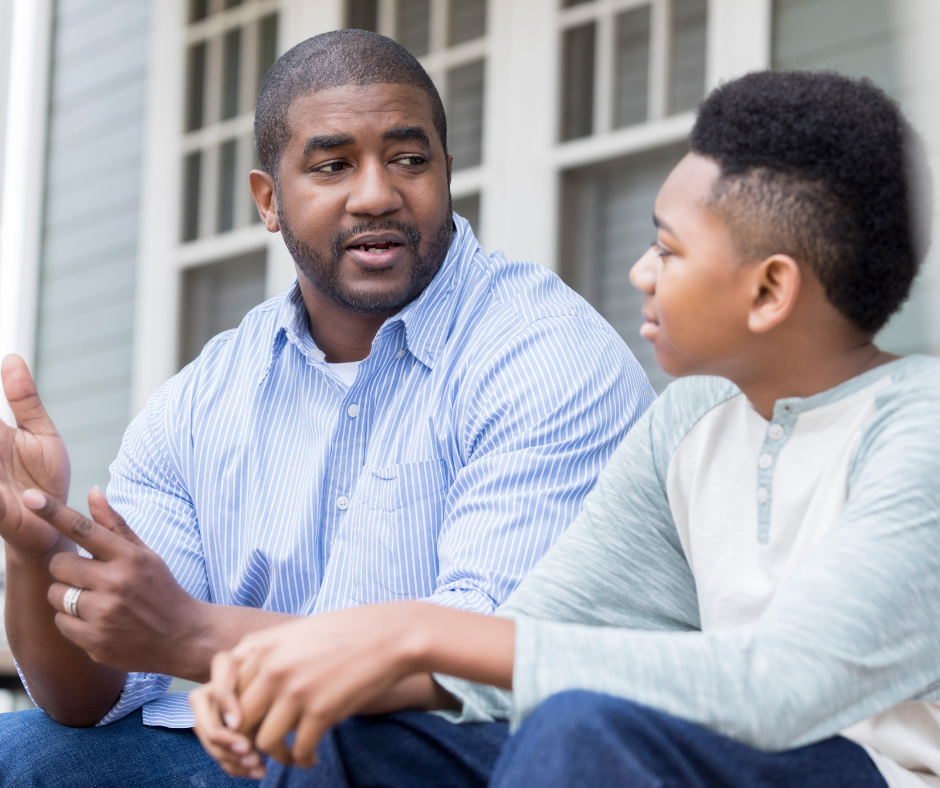Parenting is undoubtedly one of life’s most rewarding experiences, but it also presents unique challenges that can test even the most composed individuals. From managing toddler tantrums to navigating the complexities of adolescent rebellion, there are numerous situations that can push parents to their limits, making it tempting to resort to yelling or harsh language. Yelling is a subject that resonates with everyone. It’s likely that each of us has raised our voice at some point, perhaps more than once. However, by cultivating patience and implementing effective communication strategies, parents can create a more positive and nurturing environment that fosters their children’s healthy development.
Recognizing the Urge to Yell
The first step in overcoming the urge to yell is acknowledging that it is a problematic behaviour. Many parents find themselves yelling at their children without fully comprehending the underlying causes or the potential consequences of this behaviour. It is important to recognise that yelling is often an automated response triggered by various factors, such as stress, fatigue, or past experiences. Even as a psychologist, I know all too well, the temptation to increase the volume of my voice if I feel I am not being heard. The paradox is that children and adults alike, often respond better to whispers than roars.
In moments of emotional distress, some individuals, parents included, find themselves instinctively resorting to yelling, much like one might instinctively cry out when experiencing physical pain. Just as stubbing a toe prompts an immediate reaction, emotional pain can elicit a similar response. This outburst of energy serves as a temporary release, allowing for a return to a state of calm once the intensity subsides. However, when prolonged, this yelling can become consuming, holding us captive to its grip. Research has shown that parents who experienced yelling or harsh discipline during their own childhood may unconsciously perpetuate these patterns with their own children. This cycle can be difficult to break, as the brain has established neural pathways that associate certain triggers with yelling as a coping mechanism.
The Impact of Yelling on Children
While yelling may seem like a quick solution to gain a child’s attention or assert authority, numerous studies have highlighted the detrimental effects of this approach on a child’s well-being. Yelling teaches children how to raise their voices, when to do so, and that yelling can be a seemingly effective way to navigate emotionally charged situations. Consequently, it instils an ineffective method of dealing with anger, as yelling often becomes synonymous with anger.
For most children, yelling instils fear, with younger children often experiencing heightened levels of fear. When in a state of fear, it becomes nearly impossible for a child to reflect on their actions or misbehaviour. Without this reflection, learning from mistakes becomes challenging. Instead of grasping the intended lesson through natural consequences, they learn to associate mistakes with fear. This fear can carry into adulthood, shaping their behaviour and even influencing their approach to parenting.
Consistently yelling at children, especially before the age of three or four, or before they have developed a comprehensive grasp of language, teaches them to substitute effective communication with yelling. Essentially, they learn that yelling is a substitute for meaningful expression. In their young minds, the equation becomes simple: “If mum / dad yell, then so can I.” At this tender age, they lack the understanding to discern better alternatives.
Furthermore, research published in The Journal of Child Development in 2014 demonstrated that yelling produces results similar to physical punishment, impairing a child’s ability to think logically and solve problems effectively.
Cultivating Patience: Strategies for Self-Awareness and Emotional Regulation
To combat feelings of helplessness and reduce or eliminate yelling at children, consider adopting a four-step approach:
1. Make a conscious decision to stop yelling: Begin by acknowledging the urge to yell and actively choose not to engage in it.
2. Address emotional reactivity: Managing emotional reactivity is important in preventing yelling. Parents who effectively control their emotions are less likely to resort to yelling.Identify personal triggers that contribute, for example to impatience and frustration. These triggers may include running late for activities, tantrums, disobedience, whining, sibling conflicts, or feeling rushed or exhausted. After identifying these triggers, parents can develop a proactive strategy to tackle them head-on. This may entail making adjustments to daily routines, practising calming methods such as deep breathing exercises, or reaching out for support from a partner, family member, or professional during moments of overwhelm. If reactivity and anger are persistent issues, seeking professional counselling can be a worthwhile investment in personal growth.
3. Shift your perspective on yelling: Challenge your belief that yelling is an acceptable response to children’s behaviour. Consider this new perspective: “There is nothing a child can do that justifies yelling at them—unless it is a matter of saving their life.” By reframing your thinking, you can begin to adopt healthier communication habits and foster a more positive relationship with your children.
4. Commit to learning alternative skills: Invest in resources such as parenting courses like “The Triple P”, or books, and DVDs offered by Triple P website, and others that are similar. These materials provide valuable insights and techniques for replacing yelling with more effective responses. Building a toolbox of skills is key for successful parenting.
Moreover, incorporating mindfulness and self-compassion practices can empower parents to navigate difficult situations with increased composure and empathy. By recognising their emotions without criticism and intentionally opting for constructive responses, parents can exemplify positive emotional regulation to their children.
Building Healthy Communication
Enhancing how we talk and listen is key to building stronger and healthier relationships with our children. Here are some strategies:
- Active Listening: Make a conscious effort to tune in completely when your child speaks. Hold off on crafting your response and repeat back what they have said to show you are on the same page.
- Embrace “I” Statements: Instead of accusatory language, swap out finger-pointing for “I” statements like “I feel…” For example, “I feel irritated when I believe I’m not being respected…” or “I feel angry if I think I’m going to be late“. Holding the intention to not lay blame is so important to keeping communication open and trusting. When our children have a chance to be heard they often transform our perspectives and expose our assumptions.This approach keeps conversations open and avoids putting anyone on the defensive.
- Validate Emotions: Even if you disagree, acknowledge your child’s emotions. Letting them know they are heard and understood can dial down tensions, and facilitate more productive conversations.
- Offer Options: Give your child choices whenever possible. It boosts their sense of independence and encourages teamwork.
- Shower with Praise and Encouragement: Celebrate every victory, big or small. Positive reinforcement keeps the good vibes flowing and fosters a more positive dynamic.
- Lead by Example: Your actions speak louder than words. Children learn communication skills by observing their parents. Show your children the ropes by modelling active listening, respectful talk, and problem-solving. They will pick up these invaluable skills just by watching you in action.
Reprogramming Your Reaction
Recognising our emotions opens the door to new reactions – we can learn to respond differently. Every time we choose a different response, we offer our brains a chance to handle similar triggers differently down the road – rewire reactions. A fresh response might involve stepping away momentarily; for instance, “Mum is feeling overwhelmed right now, so I’ll take a quick breather and be back in a few minutes,” or “I’ve noticed I’m raising my voice, so I’ll take a moment to collect myself.”
Awareness Through Observation:
Simply noticing our feelings brings about awareness. It’s this awareness that grants us that split-second opportunity to shift from reaction to response. Just notice. It might sound like ‘Wow, I’m really frustrated’ or ‘I’m feeling angry.’ With practice, the more we observe these thoughts, the less control they exert over us.
Building Connection after Yelling
After a tense moment of yelling, it is natural for both you and your child to feel a bit shaken. Your child often seeks comfort and assurance during these times. If it feels like the right time, offer some affection—nothing beats the power of a heartfelt hug or a reassuring pat on the back. Reconnecting takes a bit of effort, but it is worth it. Invest some quality time, by showing genuine interest in your child’s world – play is by far the quickest way to talk their language. And it is the quickest route to their heart. Whether it is some rough and tumble action or getting lost in a child-led role-play adventure, play helps release and process those tricky emotions. But above all, what your child craves most is your genuine love and care. Sometimes, you do not even need to say a word—it is all about the vibes. When they feel your love, your child can find solace, and peace will soon reign again.
Letting guilt get in the way
Feeling guilty does not do us any favours. Not only does it keep us feeling “stuck”. It also drains our energy and clouds our perception of reality. Instead, afford ourselves some self-forgiveness, gratitude, and self-love to replenish our vitality. By doing so, we embody grace and wisdom— accepting that we are imperfect yet inherently human. In turn, this allows for the opportunity for our mind to consider more helpful solutions….
Navigating Challenges and Seeking Support
Even with the best intentions, parents may still grapple with impatience and the temptation to yell from time to time. During these moments, it’s important to extend ourselves some self-compassion and reach out for assistance when necessary.
Acknowledging moments of impatience and offering apologies when warranted can mend rifts in the parent-child relationship while demonstrating accountability. Moreover, building a network of supportive friends, family members, or professionals can offer invaluable guidance and a sympathetic ear during difficult times.
Celebrating small victories, like a day free from yelling or a meaningful conversation with a child, can serve as fuel for continued personal growth and reinforce our dedication to positive change.
Conclusion
Parenting is an ever-evolving journey, marked by both victories and obstacles. Yet, by fostering self-awareness, adopting effective communication techniques, and embracing continuous personal development, parents can foster a supportive and enriching environment for their children’s growth.
Perfection isn’t the aim; it’s about aspiring to be the best parent we can be, step by step. With patience, empathy, and honest communication, parents forge deeper connections with their children, equipping them with the resilience and confidence needed to thrive in the world.













